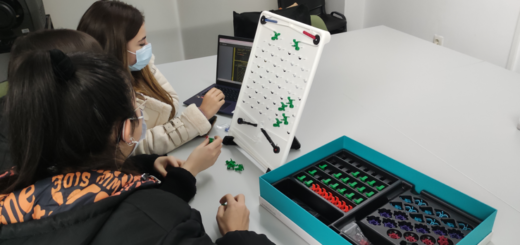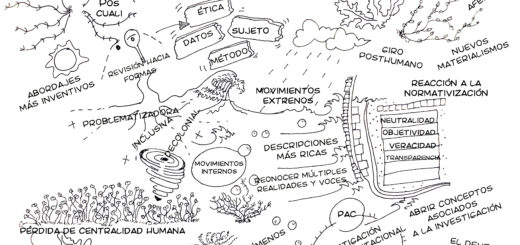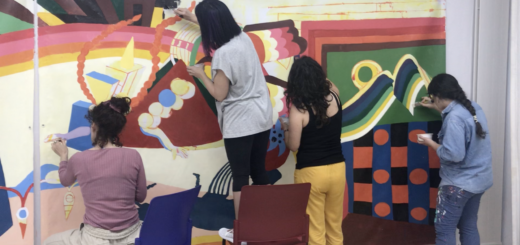Platforming families: an intergenerational study about digital transformations in families’ everyday life
The European research project Platforming Families: Tracing digital transformations in everyday life across generations (PlatFAMs) tried to find answers to these questions. The main objective of this project is to critically analyse digital life in homes, studying how different generations use digital resources and platforms in their daily lives. It aims to generate new knowledge and provide recommendations regarding the use of digital technologies and their potential impact on people’s needs, rights, protection, and digital participation. The specific objectives are: (1) to analyze the impact of digital platforms on family dynamics throughout the different stages of life; (2) to explore the negotiations that take place between family members and between different generations regarding the use and implications of digital platforms; and (3) to observe how diverse age groups within families construct and share visions about their digital futures.
The project is being carried out in five countries: Norway, Estonia, the United Kingdom, Romania, and Spain, and the implementation period is from October 1st, 2022 to September 30th, 2025. It is funded through the CHANSE (Collaboration of Humanities and Social Sciences in Europe) call on “Transformations: Social and Cultural Dynamics in the Digital Age” (European Commission) and the national research agencies of the participating countries.

Research with three generations
The research has been set up in three stages. In the first one, a review of the existing literature related to families and digital platforms has been carried out, identifying the main key concepts, evidence and gaps on the subject. In the second stage, individual and group interviews are being carried out with different family members (grandparents, mothers/fathers, children), using participatory research methods. Specifically, 60 interviews are being conducted in each country (20 families x 3 members), adding up to 300 interviews in total. For individual interviews, a timeline is used to encourage discussion and reflection by participants on the use of platforms in the past, present and future. Finally, in the third phase of the project, which is quantitative, we will analyse the data obtained through EUKids Online, a reference network in the study of the use of digital technologies in childhood and youth, with the participation of researchers from 34 European countries. The results obtained by this network will be juxtaposed to the results of our individual and group interviews.
Preliminary results
During the first phase of the project, a literature review of the scientific literature (Erstad, Hegna, Livingstone, Negru-Subticica & Stoilova, in press) has been carried out, which allows us to point out the following trends in this field of study:
- Currently, more attention has been paid to digital transformations associated with the younger generation, generally neglecting an intergenerational perspective that allows us to analyse how families use, imagine or dialogue in regard to the platformization phenomenon. As an example, at the national level there are annual and state reports focused on the use of platforms by children and young people, but the use and mediation of digital practices between several generations is not included in them.
- An eminently individual approach has predominated, paying less attention to the reconfiguration of family relationships, agency, and sovereignty.
- Digital technologies offer new ways to generate family intimacy, enabling transnational practices of care that until now were practically impossible. Therefore, rather than replacing face-to-face communication, digital technologies reinforce and complement traditional forms of care and contact (Danielsbacka et al., 2022).
- The integration of platforms into family life facilitates the adoption of new ways to capture and preserve intimate moments, allowing them to be shared beyond immediate physical presence. Therefore, through social networks, different forms of family belonging are exhibited.
- However, the literature is also concerned about gender inequalities, social barriers for older people, and the burden that comes with “constant online presence” (Neves et al., 2019).
- Likewise, “parental surveillance” is also a point of interest for research. In spite of the limited research, these studies suggest that depending on how parental supervision practices are carried out, children and young people can perceive them as caring practices that provide them with comfort and security (De Leyn, et al., 2022).
Through this research project, we hope to contribute to a greater understanding of the phenomenon of platformization of family life, something that is relevant not only at a social level, but also has important implications for education, especially in areas of growing interest such as the digital literacy of families, surveillance practices, and social participation of the elderly.
This publication is part of the project Platforming Families: Tracing digital transformations in everyday life across generations (PCI2022-135025-2), funded by MCIN/AEI/10.13039/501100011033 and by the European Union “NextGenerationEU”/PRT
Bibliography
Danielsbacka, M., Tammisalo, K., y Tanskanen, A. O. (2023). Digital and traditional communication with kin: Displacement or reinforcement? Journal of Family Studies, 29(3), 1270–1291. https://doi.org/10.1080/13229400.2022.2040575
De Leyn, T., De Wolf, R., Vanden Abeele, M., y De Marez, L. (2022). In-between child’s play and teenage pop culture: Tweens, TikTok & privacy. Journal of Youth Studies, 25(8), 1108–1125. https://doi.org/10.1080/13676261.2021.1939286
Neves, B. B., Franz, R., Jueces, R., Beermann, C., y Baecker, R. (2019). ¿Puede la tecnología digital mejorar la conexión social entre los adultos mayores? Un estudio de viabilidad. Revista de Gerontología Aplicada, 38(1), 49–72. https://doi.org/10.1177/0733464817741369
Srnicek, N. (2018). Capitalismo de plataformas. Cajanegra Editora.
van Dijck, J., Poell, T., y de Waal, M. (2018). The Platform Society: Public Values in a Connective World. Oxford University Press.

Authors:
Paula Lozano Mulet
Raquel Miño Puigcercós
Judith Jacovkis
Esbrina Research Group
University of Barcelona






